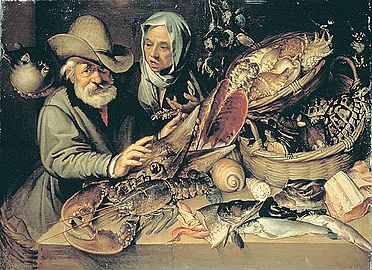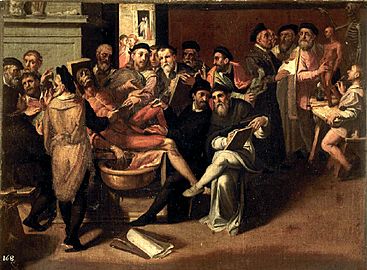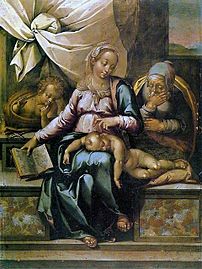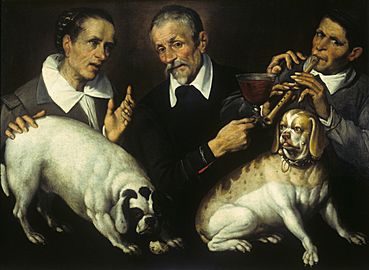Bartolomeo Passarotti facts for kids
Quick facts for kids
Bartolomeo Passarotti
|
|
|---|---|
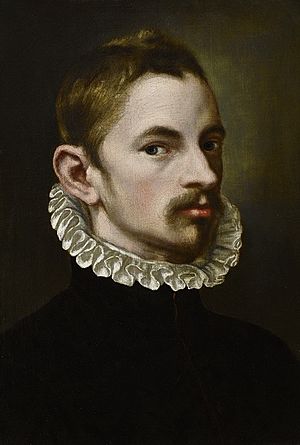
Self-portrait (c. 1560)
|
|
| Born | 1529 |
| Died | 1592 |
| Nationality | Italian |
| Known for | Painting |
| Movement | Mannerism |
Bartolomeo Passarotti or Passerotti (1529–1592) was an Italian painter of the mannerist period, who worked mainly in his native Bologna. His family name is also spelled Passerotti or Passarotto.
Life and work
From approximately 1550 to 1555, he lived in Rome, where he worked under Giacomo Barozzi da Vignola and Taddeo Zuccari. Upon returning to Bologna, he established a large studio and, from 1564 to 1565, was engaged in painting a large altarpiece for the Basilica of San Giacomo Maggiore. In his later work, he turned to Tuscan models, such as Giorgio Vasari and Prospero Fontana. His last known work was The Presentation of Mary in the Temple, from 1583, now at the Pinacoteca Nazionale di Bologna.
He influenced many Bolognese who would later play a role in the rise of the Baroque. Annibale Carracci (whose brother Agostino studied with Passerotti) was influenced by Passerotti's genre scenes in a select set of paintings (such as The Beaneater and The Butcher's Shop, the latter being originally attributed to Passerotti). Lucio Massari and Francesco Brizzi were among his pupils. Three of Passerotti's sons, including Ventura (1566–1618), Aurelio (1560–1609) and Tiburzio, were painters.
Selected works
See also
 In Spanish: Bartolomeo Passerotti para niños
In Spanish: Bartolomeo Passerotti para niños


